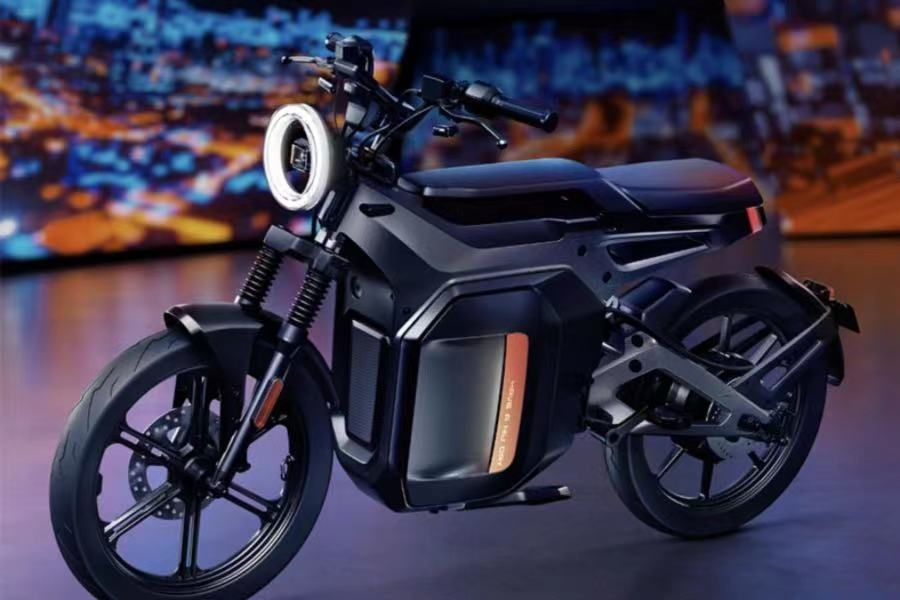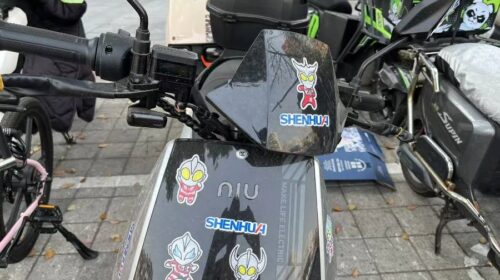Niu zapped by ‘perfect storm’ of factors in fourth quarter

Lockdowns in China clobbered the leading electric scooter maker, which also suffered overseas as shared scooter services put the brakes on new purchases
Key Takeaways:
- Niu Technologies recorded its third consecutive quarter of revenue contraction in last year’s fourth quarter, but forecast a return to growth this year
- The company was hit by an unusual confluence of factors, including lockdowns in China, soaring prices for its lithium batteries and a spending slowdown by shared scooter services
By Doug Young
A “perfect storm” of factors zapped Niu Technologies (NIU.US) in the fourth quarter, capping a year that China’s leading electric scooter maker would almost certainly rather forget.
The list of issues dogging Niu were led by some of China’s harshest-ever lockdowns and other Covid control measures in October and November, forcing the closures of many of the stores where the company’s scooters are sold. The problems already began earlier in the year when the price of batteries that power most of its products began to soar on soaring lithium prices.
But it doesn’t end there.
Equally tough Covid restrictions in last year’s second quarter hammered Niu in its hometown of Shanghai, which went under lockdown for the entire months of April and May. That caused Niu’s product development schedule to fall behind, since its main R&D center is located in the city. As a result, it had to delay the launch of several new models that are typically key drivers of new growth, missing the key peak launch season in late summer and early fall.
But it still doesn’t end there.
Before all the troubles started piling up at home, international sales were one of Niu’s few bright spots as foreigners embraced the zero-carbon form of transport in Europe, the U.S. and Southeast Asia where the company is active. But those markets took a hit due to currency fluctuations that forced Niu to jack up its prices in Europe 22%, company officials said on its earnings call after the release of its latest results on Monday.
The international market also took a big blow from a major slowdown in the shared scooter market, which accounts for a big part of its sales outside China. Niu officials painted a dire picture in that regard, saying most shared scooter operators didn’t buy any new vehicles during the quarter, sharply undermining the company’s international sales.
The one silver lining to the clouds that were all over Niu’s latest report came in its outlook for 2023, with Niu saying it expects to return to growth after logging sales contractions over the last three quarters. The company said it expects to sell 1 million to 1.2 million e-scooters this year, which would be up 20% to 45% from the dismal year in 2022.
Analysts also see things improving for Niu this year, forecasting the company will return to profitability after it slipped into the red in the fourth quarter and posted a rare annual net loss for all of 2022.
“Although we still face uncertainties and pressures on recovery of consumer sentiment, we are confident that our domestic sales will return to the growth track in 2023 with the launches of new products in the coming months,” said CEO Li Yan in remarks accompanying the company’s latest earnings report.
While all of the factors in the “perfect storm” we’ve described above were already known, investors still weren’t sympathetic to the company’s latest report, including the return-to-growth forecast for this year. Niu’s shares tumbled 9.1% in Monday trade in New York after the report’s release, and are now down 35% this year.
Declines all around
Next, we’ll dive into some of the figures that show just how bad the perfect storm was that throttled Niu in the fourth quarter. The company’s revenue fell 37.9% for the three months to December to 612.3 million yuan ($89 million), contrasting sharply with the fourth quarter of 2021 when the figure rose nearly 50% in a pattern that was far more typical for the company in recent years.
Niu sold 138,279 e-scooters in the latest period, down 41.9% from a year earlier, marking its third consecutive quarter of declines on that basis. The company’s average revenue per scooter actually rose 7% for the quarter. That may partly reflect Niu’s drive to go up-market with more premium products that typically carry higher margins. But it’s also likely that a big part of that increase was from the company being forced to raise prices due to high costs for lithium batteries.
The overall sales decline was shared relatively evenly between Niu’s home China market, which accounts for more than 80% of its sales, and its global operation. The company’s revenue from e-scooter sales in China fell 34.6%, while its international sales fell 54.2%.
Niu forecast that revenue would continue to decline in the current quarter, though it said the scale of the declines would narrow before it returns to growth later this year. It forecast first-quarter revenue of 403 million yuan to 489 million, representing a 15% to 30% decline from a year earlier.
While revenue declined sharply in the fourth quarter, the company’s operating expenses actually rose slightly by about 3.8%. As a result, it slipped into the red for the quarter with a 37.1 million yuan loss for the period, reversing a 47.6 million yuan profit a year earlier. Like we said earlier, 2022 will go down as a year that Niu and many companies in China would rather forget.
That brings us to the question of whether Niu’s shares are currently undervalued, especially after the latest selloff. The company trades at a relatively low forward price-to-earnings (P/E) ratio of 9, based on five analyst forecasts for its return to profitability this year. Italian rival Piaggio (PIA.MI) trades at a higher forward P/E of 11, while Chinese rival Kandi (KNDI.US) trades at an even higher 14 times, though Kandi’s figure is based on a single analyst’s profit forecast.
In our view, Niu has always been the leader in China, and also is really a company with big global potential due to the world’s embrace of low-emissions vehicles. While it’s possible the company has lost some of its leading edge to rivals, it really seems like Niu was mostly the victim of a confluence of many negative factors that came together all at once to lead to its miserable fourth quarter. If that’s the case, there should be plenty of room for upside in both its sales and stock if consumers and investors can look forward to a return to previous trends this year.
To subscribe to Bamboo Works free weekly newsletter, click here






